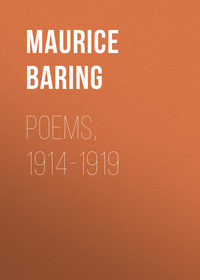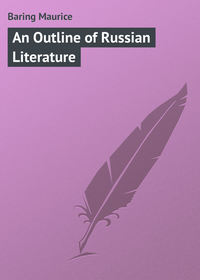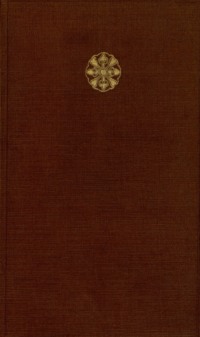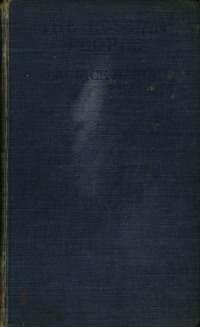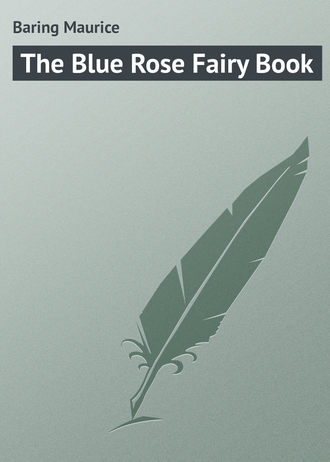 полная версия
полная версияThe Blue Rose Fairy Book
"It is for this reason we are sad," said the man, "for we are without a king."
On hearing this the King's son said: "There is no cause for grief. I will be your king." And he rode straight to the palace, and dismounting from his horse walked up the steps of the throne and placed the crown upon his head, and nobody durst say him nay.
Then the King's son thought to himself: "I have now solved the whole matter. It is needless for me to search all over the world for a Silver Mountain which I possibly may never find at all, or which my brothers may find sooner than I do, in order to inherit a kingdom, when I can thus gain almost as good a kingdom without any trouble at all."
So he thought no more about the Silver Mountain, or of his father, or of his ancient home, but he remained in this foreign country and married a wife, and ruled over it, and he lived in splendour and plenty.
The first thing which the second son did when he started on his quest was to consult an old scholar who lived in a hermitage, and who was famous for being the most learned man in the whole world. The King's second son went to him and said: "I want to find the Silver Mountain in order that I may inherit my father's kingdom."
The scholar said to him: "It is a good thing that you came to me for advice. Nobody in the world can help you as well as I can. There is no such thing as the Silver Mountain, and I daresay you know that already; nevertheless your father was a wise man to have made this quest the condition of the inheritance."
"But," said the King's son, "if there is no such thing as the Silver Mountain, there remains nothing for me to do but to go home and claim my inheritance."
"Not at all," said the old man. "It is of no avail to say that there is no such thing as the Silver Mountain, especially when almost everybody in the world is quite certain that the thing exists. Where your task lies is to find out what people think is the Silver Mountain, and to prove to them that it is not silver at all, but an ordinary mountain just like any other. That is what you must do." And so saying the old man refused to discuss the matter any further.
So the King's son set out on his quest once more, and on the way he met many people who were all seeking for the Silver Mountain. They were all anxious to find it, because they said that the man who found it would be a great king; and the King's son asked them to guide him to the place where it was likely to be. This they were willing to do, and after they had journeyed for many days, through forests and swamps, across large rivers, down steep valleys, and over wooded hills, they reached a wide plain; and beyond this plain rose a great chain of mountains, and in the centre of this chain there towered one mountain higher than the rest, and it was covered with clouds.
The people pointed to this mountain and said: "Without doubt, that is the Silver Mountain."
The King's son said he would climb this mountain, and he took the people with him. The ascent was steep and perilous, and many a time those who were with him would have turned back, had he not encouraged them and led them on by his fiery words, and after many days of toil and hardship, they reached the summit of the mountain, whence they obtained a view over the whole country.
Then the King's son said to them: "This is the highest mountain in the whole of the land – the whole of the land is now revealed to us. We know all there is to be known about this country, and it is quite plain that this mountain is a mountain just like any other, and that in the whole world there is no such thing as a Silver Mountain; therefore we will now go back and tell this to the whole world, and save our friends and our brothers from wasting their time and exhausting themselves in fruitless labour over an insane quest."
So they went back to the country, and announced the news far and wide that there was no such thing as a Silver Mountain, and that those who had set out on the quest of it had better return to their homes.
Now when the people heard this they were angry, and they threw stones at the King's son, and he was compelled to flee from their city and to seek shelter in the old scholar's home. But from that time forward many people in the country ceased to think of the Silver Mountain any more, or to search for it, and even among those who were angry with the King's son there were many who felt that his words were true nevertheless.
The third son started also on the quest. He sought out all the highest mountains of the country, and convinced himself that none of them could be the Silver Mountain, and yet he was sure there was such a thing somewhere, and he persisted in believing this, and in saying it. He spent many years of fruitless search, but he never gave up the quest, nor did he ever lose hope that one day he should accomplish it.
One evening, after he had been searching all day, he lay down, footsore and weary, and he said to himself aloud: "If only the fairies would help me, I should find the mountain soon enough."
No sooner had he said this than a beautiful fairy stood before him and said: "I will help you to find the Silver Mountain," and she gave him a small mirror made of polished steel, whereupon she immediately vanished.
The King's youngest son took the mirror and looked into it, and there he saw very distinctly the image of his father lying ill, propped up by pillows, dying and lonely, without any of his children about him. And the King's youngest son said to himself —
"What does it matter to me whether I inherit the kingdom or not? Before I think of that I must go back and see my father before he dies. I would much rather my brothers found the mountain before me, and inherited the kingdom, than that my father should die without my saying 'Good-bye' to him."
And he turned back, and made for his home as quickly as possible.
Now the King's palace was on the top of a high hill, and the King's youngest son approached it from the back, where he had never been before in his life, and towards evening he emerged from the forest and saw this hill before him, shining in the sunset, with the King's golden palace at the summit of it; and in the clear glory of the sunset the hill shone like silver, and the King's youngest son, as he looked at it, said —
"Why, this is the Silver Mountain!" And as he ran up the hill as fast as he could he saw that it was of silver after all. So he rushed into his father's bedroom, crying: "Father, I have found the Silver Mountain – it was here the whole time – at home – and we have all lived on the top of it without knowing it!"
The King was very pleased to see his son, and he said: "My son, what you say is quite true, and you shall inherit my kingdom." And the King kissed him, and soon after this he died, and the King's son reigned in his stead, and reigned happily ever after as the King of this country.
THE RING
Once upon a time there was a King and a Queen who had only one daughter, called Windflower. Just before Windflower's ninth birthday, the Queen, her mother, when she was walking in the garden of the palace, found a silver horseshoe lying on one of the paths. Now a silver horseshoe was always found in the garden just before the death of a Queen, so the Queen went to bed at once and sent for her daughter.
"My child," she said, "I have found a silver horseshoe in the garden, and that means I have not long to stay in this world. So listen carefully to what I have to say. You will be the most beautiful Princess the world has ever seen, and I hope you will find a husband who is worthy of you. Take this ring; it is was given to me by my mother, who in her turn received it from my grandmother. The ring is faëry, and you must keep it and wear it always, for as long as you keep it you will be sure of true love; but if you give it away you will give your heart and all its power away with it, and evil will come of this. And if you are blessed with a daughter you must give it to her before you die; but if you have no daughter then you must cast the ring into the sea, for its work will be done."
When the Queen had said this she kissed Windflower and put the ring on her finger. Then she sent for the King and bade him be a good father to their child, and after she had said farewell she fell asleep and never woke up again.
Two years after the Queen died, the King married again. This second wife had already been married before, and she had a daughter of her own who was called Emerald, and who was just the same age as Windflower. As the years rolled on the new Queen became jealous of her step-daughter, because Windflower grew up into the most lovely creature that had ever been seen. She was tall and slender, and her eyes were like dew and her face like the petal of a flower. She danced like the surf of the sea, and she sang like a bird.
But Emerald, although she was handsome, had a proud face, with envious green eyes that glittered balefully. And as, of course, everybody liked Windflower much better than Emerald, this made the Queen angry, and she determined, when the children were grown up and it was time that they should marry, that none of the princes of the land should set eyes on Windflower until Emerald was married. So she sent Windflower to a lonely tower which was in a forest outside the city, and she told the King and the Court that Windflower was not well, and had been ordered by the physicians to live in a quiet place. So Windflower lived by herself in the forest and saw nobody but her old nurse; but she was not sorry to get away from her step-sister, who teased and pinched her dreadfully.
When Emerald's seventeenth birthday came, the King and the Queen prepared a grand banquet to celebrate it, and they invited all the princes of the land, and of these the youngest and the handsomest was Prince Sweetbriar. As he was heir to a large kingdom, the Queen was anxious that he should marry Emerald.
Now it happened that as Prince Sweetbriar was riding to the palace in company with several other Princes, he dropped behind his companions and lost his way, and presently he found himself in the forest where Windflower lived, and he rode past just under the tower. Just then Windflower was leaning out of the window. Her hair, which was like a golden mist, was hanging about her shoulders, and her face blushed like the dawn. Sweetbriar looked up, and he fell in love with her at first sight, and Windflower looked at him and smiled and fell in love with him too. Then he rode on till he found the city and the palace.
The Queen paid every attention to him, and gave him the most gorgeous room in the palace. The banquet was held in the evening, and after it was over there was a State ball. Sweetbriar looked everywhere for Windflower, but in vain. He asked one of the courtiers whether the King had not got another daughter, and he was told that there was another called Windflower, but nobody ever saw her because she was ill. But Sweetbriar could think of nothing else but Windflower's face, and, in spite of all the Queen did, he took no notice of Emerald.
When the ball was over he found out from his page, who had been gossiping in the kitchen, that Windflower was none other than the beautiful maiden he had seen in the forest. So early next morning he set out for the forest, and he found the tower without difficulty. Windflower looked even more beautiful than before, and Sweetbriar declared his love and asked her to be his wife, and she answered "Yes," and they spent the whole morning together, talking about how happy they would be.
Then Sweetbriar rode back to the palace and asked the King for the hand of his daughter Windflower, whom he had met in the forest. The Queen, of course, tried to make objections, but Sweetbriar would not hear of them; so the King gave his consent, and the Queen could do nothing more, and Sweetbriar and Windflower were married.
For a year they were as happy as the day is long, and a little daughter was born to them whom they christened Sundew; but after a year had gone by the Queen took counsel with her daughter Emerald, and said —
"All is not yet lost, and if you are skilful we may defeat the minx yet. You have only to persuade Sweetbriar to make Windflower give him the ring which her mother gave to her, and all will be well."
"I will do it," said Emerald.
So one day Emerald said to Sweetbriar: "You have a very beautiful wife. I hope she is as devoted as she is beautiful."
"Of course she is!" said Sweetbriar.
"Do you think she would do anything you wished?" asked Emerald.
"Of course," answered Sweetbriar.
Then Emerald laughed, and said: "I am sure she would not even give you the ring she wears on her finger."
Sweetbriar laughed, but Emerald only said: "Try."
So that very same day Sweetbriar said to Windflower: "Emerald is so jealous of you that she says you would not even give me the ring which you wear on your finger, if I ask it of you."
Windflower was distressed when she heard this, and she told Sweetbriar of her mother's warning, and Sweetbriar said that she had much better not give him the ring, since he needed no ring to tell him that she loved him.
But when he next saw Emerald she mocked him, and said: "What did I tell you? She doesn't even love you enough to give you a ring!" And every day Emerald taunted him like this, and she said: "I've no doubt she finds excellent excuses, but she will never give you the ring!"
At last one day Sweetbriar could bear it no longer, and he said to Windflower: "What does it matter if you give your heart away to me? Your heart belongs to me already, so there can be no harm in giving me the ring. Give it to me, for I can no longer bear Emerald's taunts."
So Windflower gave him the ring. Now the ring, as I said, was faëry; as long as she kept it her heart was her own and had the power to bind her husband's heart, but as soon as she gave the ring away, she gave away her heart and with it all its power; so that, although her heart still belonged to Sweetbriar, Sweetbriar's love no more belonged to her – and he soon forgot all about Windflower.
As soon as the Queen and Emerald saw this, they drove Windflower and her child from the palace, and left them in a wood to perish, and they said they had been devoured by wild beasts, and Sweetbriar was wedded to Emerald.
But Windflower and Sundew did not perish. A woodcutter showed them the way out of the wood, and they wandered for several years from city to city begging their bread. One day, when they were both very hungry, and Windflower had just earned a crust of bread, an old woman came up to her and asked for alms.
"I have got no money," said Windflower, "but take this; you need it more than we do." And she gave her the crust of bread.
"You are a good child," said the old woman; "keep your bread and ask for a gift and I will give it you."
"The only gift I crave is what nobody can give," said Windflower. "It is my husband's love, which has been taken from me." And she told the old woman her story.
And the old woman said: "There is only one way of winning back your husband's love. You must earn the ring which you gave him, and he must give it you back and your heart with it in return for his life." So saying the old woman disappeared.
Windflower at once set out for the King's city, and when she got there she found every one in woe and trouble because Prince Sweetbriar was lying mortally sick and nobody could cure him. The King had offered half his kingdom to any one who should cure the Prince, but nobody had even tried.
Windflower, who was in rags and quite unrecognisable, crept into the kitchen and begged a little bread for herself and her little daughter Sundew. She was allowed to warm herself at the fire, and she heard that the Prince had been wounded by a poisoned arrow, and that if some one would suck the poison from his wound he would recover; but nobody would do this, for they knew that they would die themselves, and what was the use of half a kingdom to a dead man?
So Windflower went to the King, and offered to cure the Prince on the condition that he should give her as a gift anything she should ask for.
The King agreed, and Windflower went to the Prince and sucked the poison from his arm. Sweetbriar at once began to get well, and he asked Windflower what she craved as a reward.
"The ring upon your finger," said Windflower.
Sweetbriar gave her the ring, and immediately her heart came back to her, and with it Sweetbriar's love, and he remembered everything and recognised Windflower, and with a great cry he took her in his arms.
And Windflower's heart overflowed with joy. She slipped the ring on her little daughter's finger, then she looked at her husband and smiled, and fell asleep in his arms. She never woke up again, because the poison she had sucked from Sweetbriar's wound was deadly.
And Sweetbriar drove Emerald and her mother from the house, and although his heart was broken, he said no word and he shed no tear, for he knew that it had all come about through his own fault, and that Windflower was very happy and glad to be asleep, because she was so tired.
But his little daughter Sundew laughed, and played with him every day, and she mended his broken heart for him very well, although it was never quite the same as it had been before. And she grew up to be as beautiful and as good as Windflower, and she never gave away her mother's ring.
THE MERCHANT'S DAUGHTER
(A GREEK STORY)
Once upon a time, long ago in Greece, there was a merchant, who used to earn his living by trafficking with goods among the Greek Islands and along the coast of Asia. Sometimes he used to go as far as Persia and India. He possessed many argosies, and he used to take with him large bales of embroideries, silks and other stuffs, spikenard, and all kinds of rare scents and ointments, and these he used to sell for as much money as he could get for them.
But although he was wealthy, he was a kind merchant; and although he considered trade to be important, and struck as good a bargain as he could, when the time for bargaining came, yet there was something that he considered more important than merchandise and than bargaining, and that was his daughters. He had three daughters. The eldest was called Heliodore, the second Hermione, and the third Daphne. They were all three of them extremely beautiful. The eldest, Heliodore, was tall like a lily; the second, Hermione, was dark like a rose; and the third, Daphne, was like a flower that grows in the springtime.
One day, when his daughters were grown up, it was necessary for the merchant to make a long journey to the East – a longer journey than he had ever made before. He was obliged to go to India in order to sell some vases cunningly worked, which Indian princes were especially fond of. Before he started he called his daughters to him and said good-bye to them. They each of them kissed him on both cheeks, and begged him to bring them back something from India. They knew that India was a marvellous country, full of rich and strange things. He promised to bring back something for each of them, and he asked them what they would like. Heliodore said she would like a scarf woven of moonbeams, such as is only to be found in the mountains which are in the north of India. Hermione said she would like a necklace made of rubies, such as are only found in the mines of India, where little gnomes work all day and all night underground and never see the sky. But when he asked Daphne what she would like, she answered: "The only thing that I want is the Golden Ring." And Heliodore and Hermione laughed at her, and said: "Silly child! she could buy a golden ring in any shop in Athens. What a foolish thing to ask for."
Before the merchant started, Heliodore, Hermione, and Daphne burnt a sacrifice on the altar of Hermes, and they prayed that the winds and the waves might be favourable to their father, and they entreated him that he should remember his promise to them, and should not forget the gifts which they desired; and they said at the end of their prayer: "If our father forgets to bring back these gifts which he has promised us, then grant us that his ship, swift Hermes, may not stir from the shore." And the merchant confirmed their prayer, and burnt incense on the altar himself. Then he started for India.
He arrived in India without difficulty, and during several months he carried on his trade and did excellent business. He sold cunningly wrought cups to the Indian princes, and statues, and garments, and sandals, and lamps, and many other things besides. He travelled all over India, trafficking and striking bargains; and during his travels he went up to the northern mountains, and bought from an old woman a veil made of moonbeams, for his eldest daughter Heliodore. This veil was expensive, and he was obliged to give in exchange for it some of the grass of Parnassus, gathered while Apollo was playing upon his fiddle, and some water from the spring of Helicon, taken in a crystal flask on the night when the Muses cease from quarrelling and sing in unison to the new moon.
After he had bought this veil at such a high price, he went to the plains in the centre of India, and walked into the heart of a mountain, and reached the caves which are under the earth, where the gnomes work all day and all night, and there he asked the King of the Gnomes to sell him the necklace of rubies. The King of the Gnomes said: "What will you give me for it?" And the merchant said: "I will give you whatever you ask." And the King of the Gnomes said to him: "I will have in exchange for a necklace of rubies the nightingale that sings in the thickets of Daulis." So the merchant gave him this nightingale, although he was sorry to part with it, and received the necklace of rubies in exchange.
The merchant remembered these gifts, which were so difficult to get, but he quite forgot what he had promised to his third daughter, which was only a golden ring, and he started home without the golden ring. When he reached the coast, and embarked on his argosy, there was a fair breeze, and he was pleased because he thought his journey would be swift. But what was his surprise to find that the ship would not stir from the shore. Many other ships belonging to other sailors were scudding fast through the waves, leaving behind them a trail of foam, and yet his ship, although she was an excellent seaboat, refused to stir. And this lasted all day and all night.
At last he disembarked and sat down on the shore, and thought, saying to himself, "What spell has been put on my ship? What have I done? In what way have I displeased the gods that they prevent me from going home?"
As he was pondering over this, a peasant walked along the coast. He was carrying a basket of eggs home from the market, and he stopped and asked the merchant what he was thinking of.
The merchant hardly liked to tell him about his private family affairs, but the peasant said to him: "I am sure there is something on your mind, otherwise it is impossible that your ship should not be scudding over the sea. Perhaps you promised something to somebody before you started."
The merchant thought about this, and then at last he remembered what he had promised to Daphne, and he said to the peasant: "I promised my daughter to bring her back the Golden Ring from India, and I have forgotten to do so."
The peasant said: "That accounts for it all. If you have promised to bring back something to somebody who is dear to you and have forgotten it, it is quite impossible that you should sail back home."
"That is all very well," said the merchant, "but can you tell me where I can find the Golden Ring? You see, there are many golden rings everywhere, but my daughter Daphne, who is my youngest daughter, asked me to bring her back the Golden Ring."
The peasant nodded and turned round, and then he said: "You see this road running in front of you into the distance? Walk along it, without looking to the right or to the left, and when you have walked for three hours you will reach a spot, and in that spot is the Golden Ring."
The merchant did what the peasant had told him, and he walked for three hours without looking to the right or to the left. When the three hours were over he reached a milestone, on which was written: "To the Coast, three hours; to the Palace, one minute." Near the milestone an old man with a long grey beard was sitting, so the merchant spoke to the old man, and said to him: "Sir, can you tell me where I can find the Golden Ring?"


